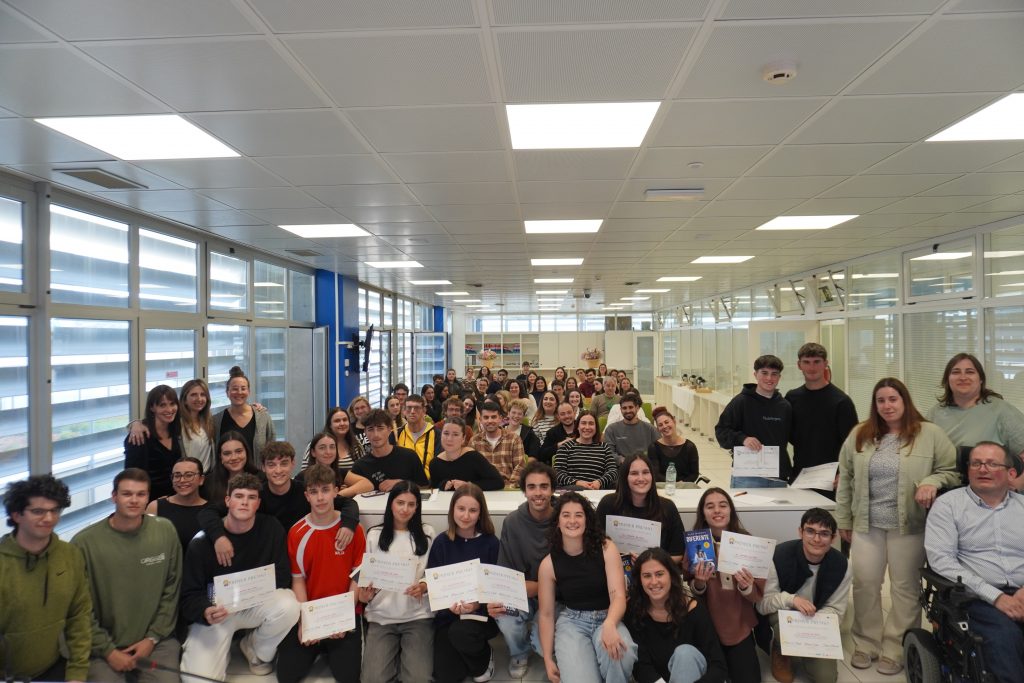
Occupational Therapy Students Awarded at CITIC of UDC for Their Innovative Inclusive Designs
- An adapted cup and an ergonomic spoon, created by first-year students, stand out for their contribution to accessibility for people with functional diversity.
- CITIC hosted yesterday the results presentation of the European study Design2Freedom, coordinated by the Talionis research group.
A Coruña, May 7, 2025. – CITIC of the University of A Coruña (UDC) hosted yesterday the presentation event of the pilot study results from the European project Design2Freedom, coordinated by the Spanish Confederation of People with Physical and Organic Disabilities (COCEMFE). This initiative promotes inclusive methodologies and products through joint work between students, individuals with functional diversity, and professionals from various fields.
Over the course of two months, first-year students from UDC’s Bachelor’s Degree in Occupational Therapy worked in mixed teams with users from ASPACE Coruña and COGAMI. They also collaborated with faculty and students from Engineering, Education, Speech Therapy, and Social Work to design technological solutions for everyday challenges.
During the closing event, a mixed jury composed of Nereida Canosa, Councilor for Social Welfare, Participation, and Equality of the City Council of A Coruña; Laura Nieto, lecturer and researcher at CITIC of UDC; Jorge Liñares, user of ASPACE Coruña; and Ángela Labandeira, representative of COGAMI, recognized the most inclusive and innovative solutions.
The first prize went to “Joan’s Cup”, which the jury praised for its user-centered design approach and for how the team integrated the user’s needs from the beginning of the creative process.
The project focused on a customized device proposed by Joan, a user from ASPACE Coruña. Its main objective was to design an adapted cup that allows him to handle small objects more efficiently. The team worked closely with Joan and his environment, proposing two solutions with technical drawings and specific measurements, using a technical and functional approach that was highly focused on the user’s needs.
The second prize was awarded to an adapted kitchen tool: a spoon with a thickened handle designed to improve grip and prevent slipping. The team behind the project “Hold It Right” used techniques such as clay modeling and 3D printing with food-safe materials to develop a viable and practical solution. Their main goal was to create a tailored tool that facilitates gripping and using utensils.
European Study
Design2Freedom is currently in its pilot phase across three European universities: Vilniaus Kolegija – VIKO (Lithuania), Technicka Univerzita v Kosiciach – TUKE (Slovakia), and Universidade da Coruña – UDC (Spain). The project aims to create an inclusive learning environment that prepares future professionals to develop truly user-centered products and services.
The pilot project at UDC has been led by the Talionis group at CITIC, which promotes the application of R&D&I in ICT with social impact.





